Kailu Li
Nucleus-aware Self-supervised Pretraining Using Unpaired Image-to-image Translation for Histopathology Images
Sep 14, 2023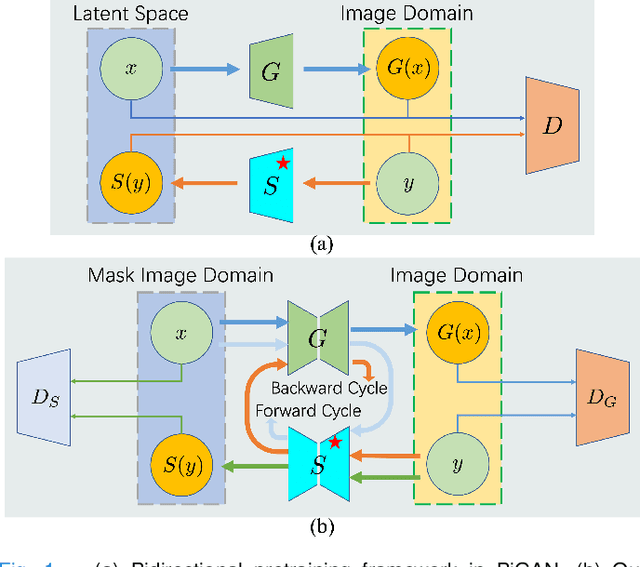
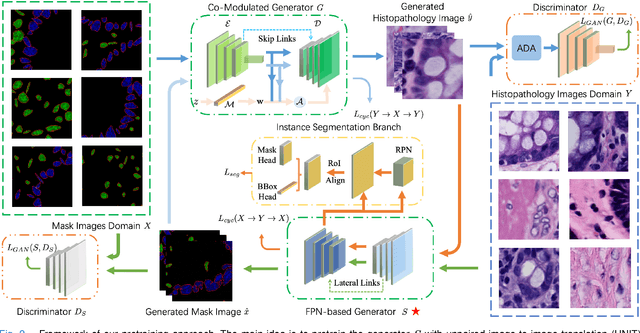
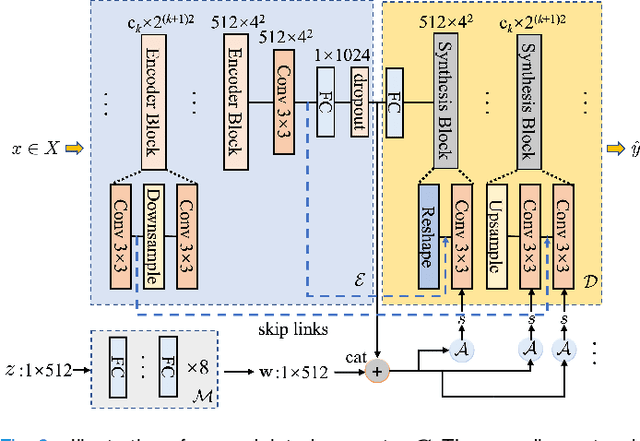
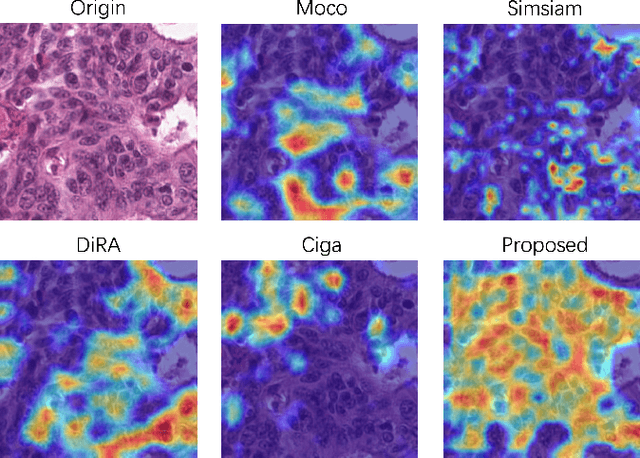
Abstract:Self-supervised pretraining attempts to enhance model performance by obtaining effective features from unlabeled data, and has demonstrated its effectiveness in the field of histopathology images. Despite its success, few works concentrate on the extraction of nucleus-level information, which is essential for pathologic analysis. In this work, we propose a novel nucleus-aware self-supervised pretraining framework for histopathology images. The framework aims to capture the nuclear morphology and distribution information through unpaired image-to-image translation between histopathology images and pseudo mask images. The generation process is modulated by both conditional and stochastic style representations, ensuring the reality and diversity of the generated histopathology images for pretraining. Further, an instance segmentation guided strategy is employed to capture instance-level information. The experiments on 7 datasets show that the proposed pretraining method outperforms supervised ones on Kather classification, multiple instance learning, and 5 dense-prediction tasks with the transfer learning protocol, and yields superior results than other self-supervised approaches on 8 semi-supervised tasks. Our project is publicly available at https://github.com/zhiyuns/UNITPathSSL.
Transformer based multiple instance learning for weakly supervised histopathology image segmentation
May 18, 2022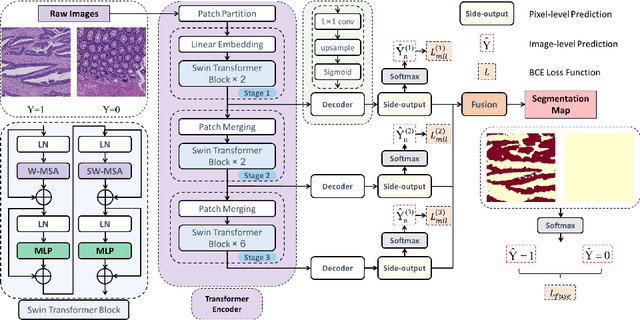
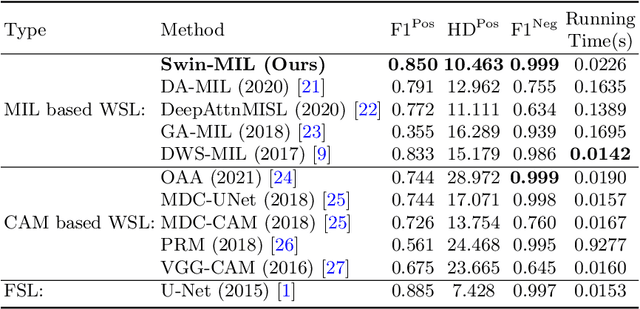
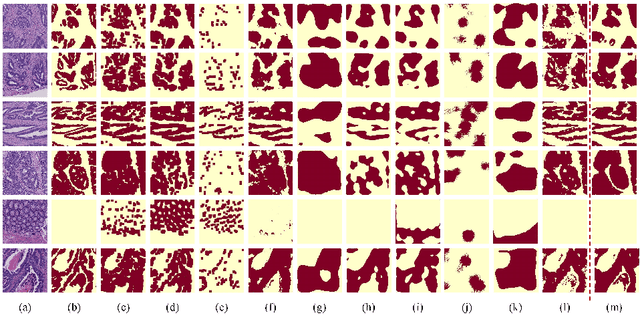

Abstract:Hispathological image segmentation algorithms play a critical role in computer aided diagnosis technology. The development of weakly supervised segmentation algorithm alleviates the problem of medical image annotation that it is time-consuming and labor-intensive. As a subset of weakly supervised learning, Multiple Instance Learning (MIL) has been proven to be effective in segmentation. However, there is a lack of related information between instances in MIL, which limits the further improvement of segmentation performance. In this paper, we propose a novel weakly supervised method for pixel-level segmentation in histopathology images, which introduces Transformer into the MIL framework to capture global or long-range dependencies. The multi-head self-attention in the Transformer establishes the relationship between instances, which solves the shortcoming that instances are independent of each other in MIL. In addition, deep supervision is introduced to overcome the limitation of annotations in weakly supervised methods and make the better utilization of hierarchical information. The state-of-the-art results on the colon cancer dataset demonstrate the superiority of the proposed method compared with other weakly supervised methods. It is worth believing that there is a potential of our approach for various applications in medical images.
 Add to Chrome
Add to Chrome Add to Firefox
Add to Firefox Add to Edge
Add to Edge